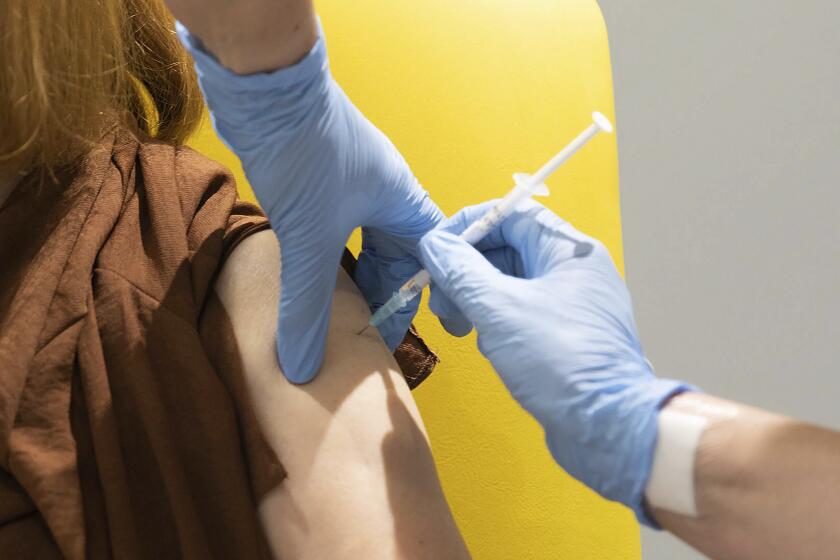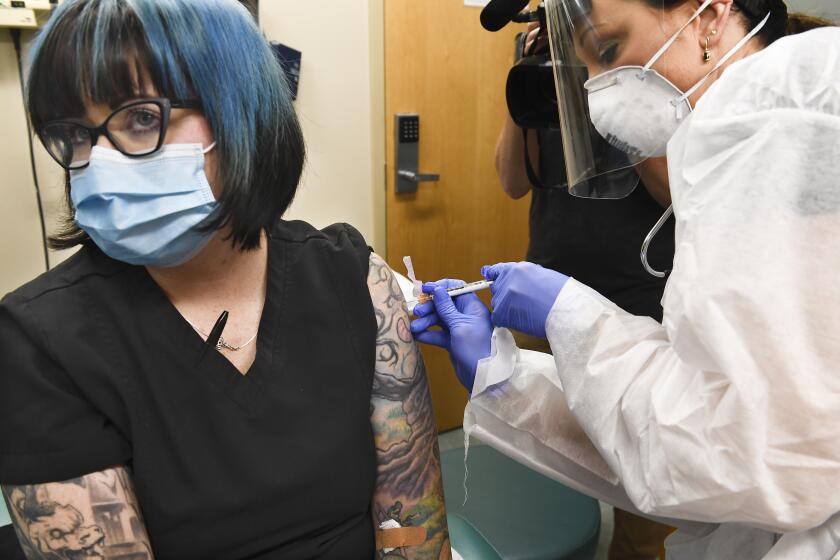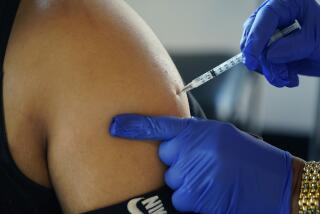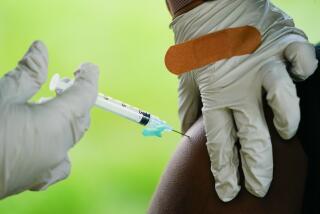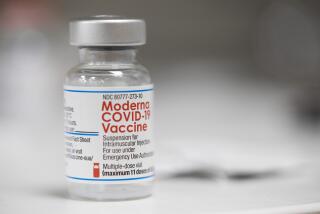European regulator to decide Dec. 29 on Pfizerâs COVID-19 vaccine
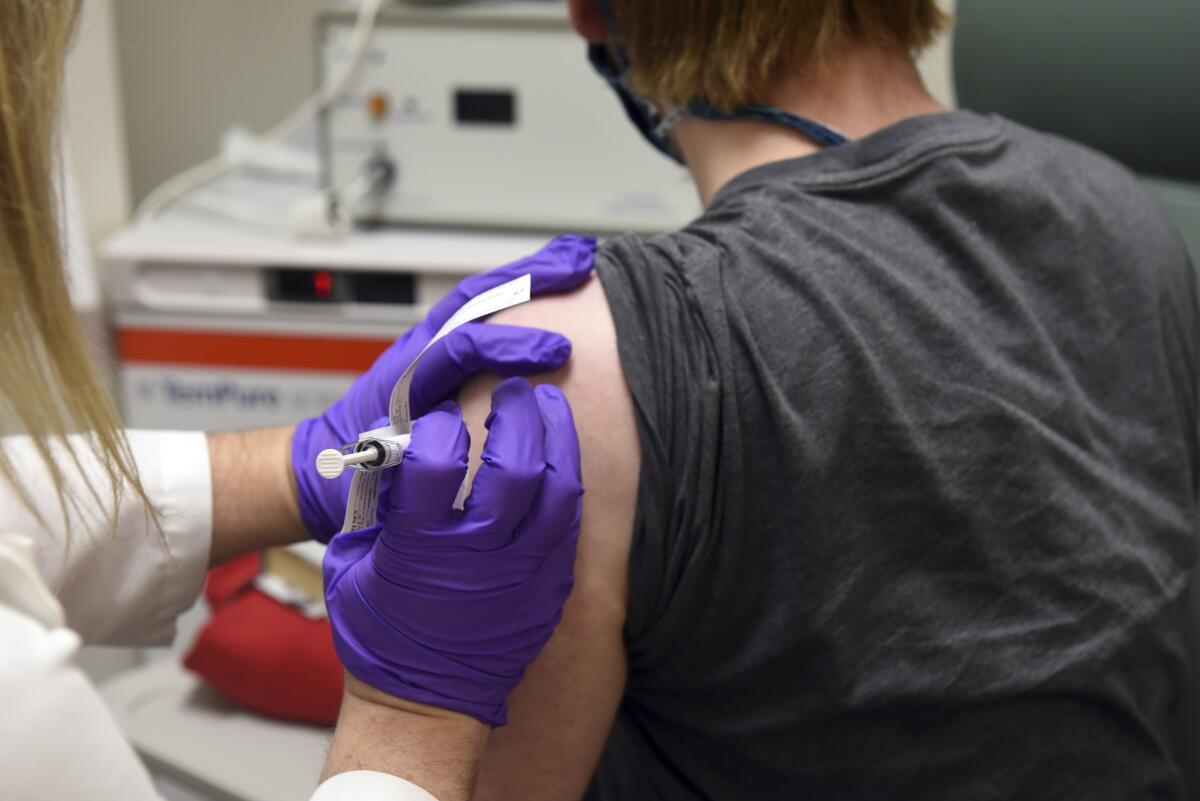
BERLIN â The European Medicines Agency will meet Dec. 29 to decide if there are enough data about the safety and efficacy of Pfizerâs COVID-19 vaccine for it to be approved, the regulator said Tuesday.
The agency also said it could decide as early as Jan. 12 whether to approve a vaccine candidate developed by Moderna.
Pfizer and its German partner, BioNTech, said earlier Tuesday that they had asked the regulator for expedited, conditional approval of their vaccine, to conclude the rolling review process they initiated with the agency Oct. 6. The companies said last month that clinical trials with 44,000 participants showed the vaccine â currently named BNT162b2 â to be 95% effective. The efficacy rate in particularly vulnerable older age groups was more than 94%, they said.
In a statement, the EU medicines regulator said it had also already begun a ârolling reviewâ of the Moderna vaccine based on laboratory data previously submitted by the company and would now assess data on how well that vaccine triggers an immune response and whether it is safe enough for broad use across Europe.
The agency said that âif the data are robust enough to conclude on quality, safety and effectiveness,â then it could approve the Moderna vaccine at a meeting scheduled for Jan. 12.
Moderna had said Monday that it was asking U.S. and European regulators to allow emergency use of its COVID-19 vaccine.
The first COVID-19 vaccines are expected to arrive in just a few weeks, but it could take well into 2021 before things get back to normal in the U.S.
BioNTech and Pfizer have already submitted a request for emergency approval with the U.S. Food and Drug Administration and the British regulator MHRA, as well as rolling submissions in other countries, including Australia, Canada and Japan.
âWe have known since the beginning of this journey that patients are waiting, and we stand ready to ship COVID-19 vaccine doses as soon as potential authorizations will allow us,â Pfizer Chief Executive Albert Bourla said in a statement.
BioNTech said it stands ready to ship stockpiles of vaccines where they are needed once the Amsterdam-based European Medicines Agency or the FDA approves the vaccine.
âDepending on how the authorities decide, we can start delivering within a few hours,â said BioNTechâs chief operating officer, Sierk Poetting.
There are still many unknowns when it comes to the pandemic, but the early signs of success for two experimental COVID-19 vaccines make a few things clear.
The European Unionâs top official said that around 2 billion doses of potential COVID-19 vaccines have been secured for the blocâs 27 nations, with the first deliveries likely to start before the end of the year.
EU Commission President Ursula von der Leyen said member nations had started working on their vaccination plans and on the logistics for delivering tens of millions of doses across the bloc, a major challenge for the EU.
âIf everything goes well, the first European citizens might already be vaccinated before the end of December,â Von der Leyen said. âAnd it will be a huge step forward toward our normal life.... There is a light at the end of the tunnel.â
The commission, the EUâs executive arm, has deals allowing it to purchase doses of vaccines being developed by Moderna, AstraZeneca, Sanofi-GSK, Janssen Pharmaceutica, BioNTech-Pfizer and CureVac.
Germanyâs education and research minister said Tuesday that the same safety standards were being applied in the approval process for COVID-19 vaccines as for other drugs and that this would be key to gaining the widest possible public acceptance for immunization against the disease.
Anja Karliczek cited the fact that Europan regulators plan to hold a public hearing Dec. 11 on the approval request submitted by BioNTech and Pfizer.
Speaking to reporters in Berlin, Karliczek stressed that the vaccine would be voluntary and that authorities would work hard to inform the public about possible side effects that a small percentage of recipients might experience after immunization, such as headaches, exhaustion and fever.
More to Read
Sign up for Essential California
The most important California stories and recommendations in your inbox every morning.
You may occasionally receive promotional content from the Los Angeles Times.
